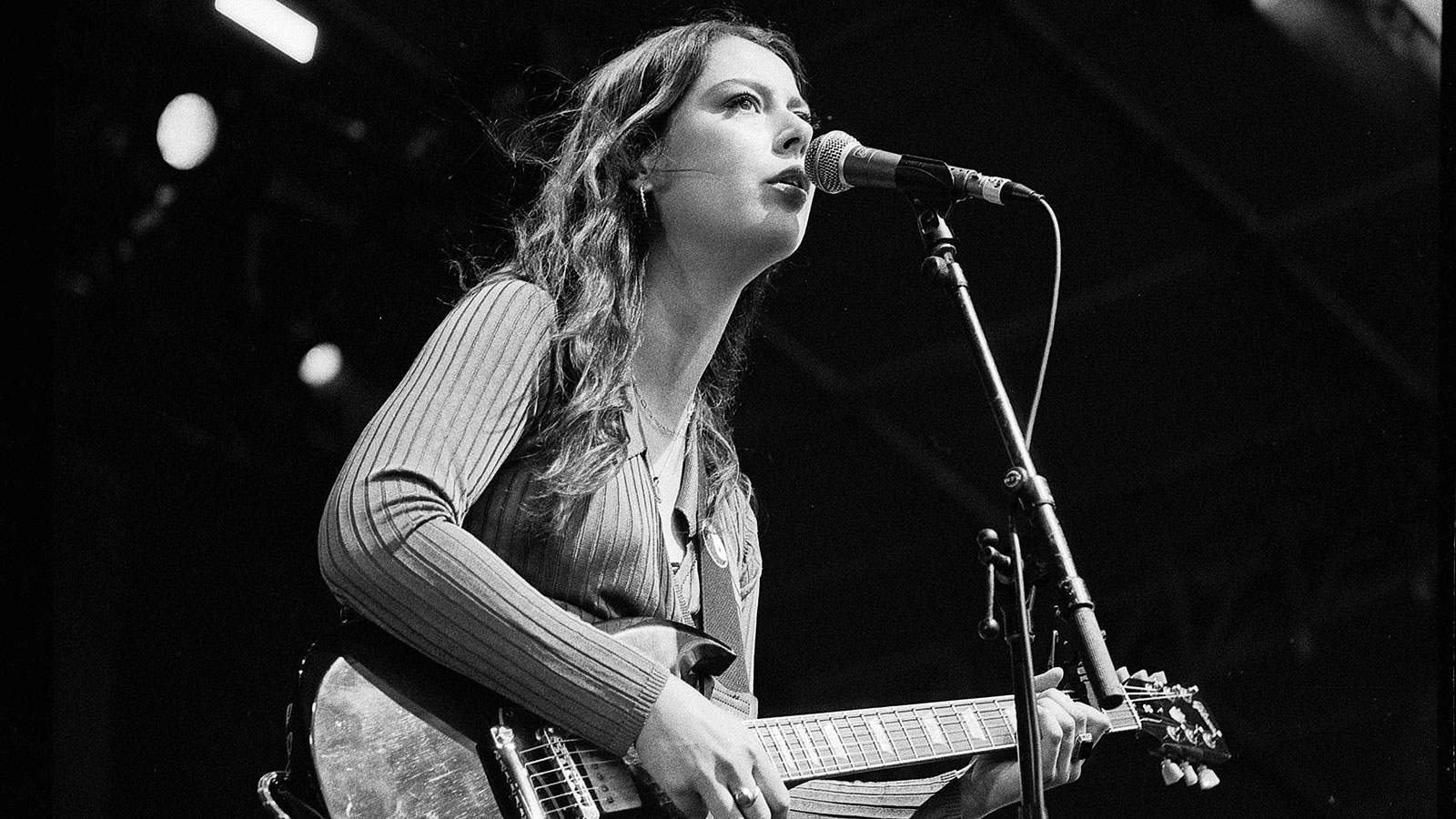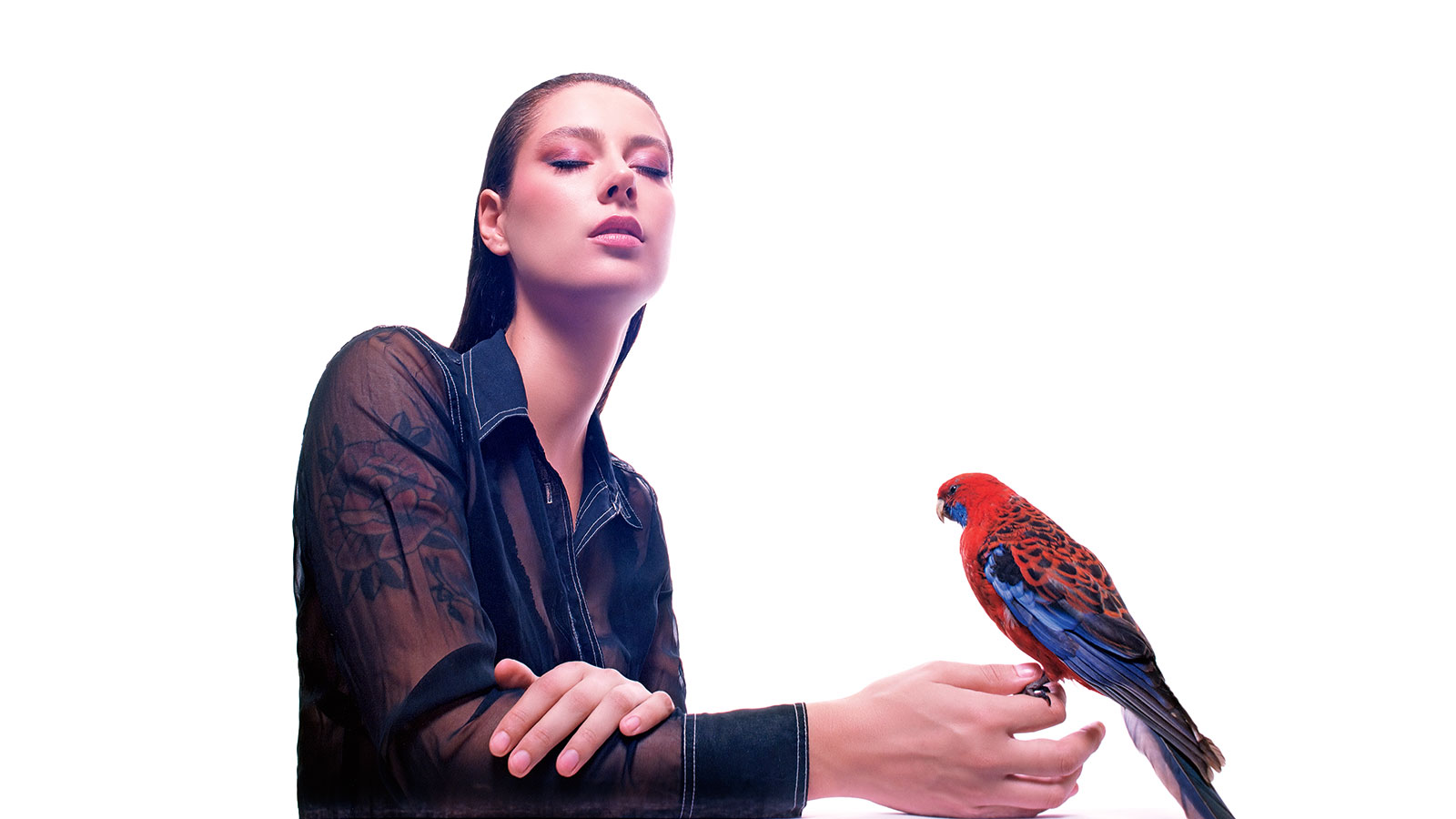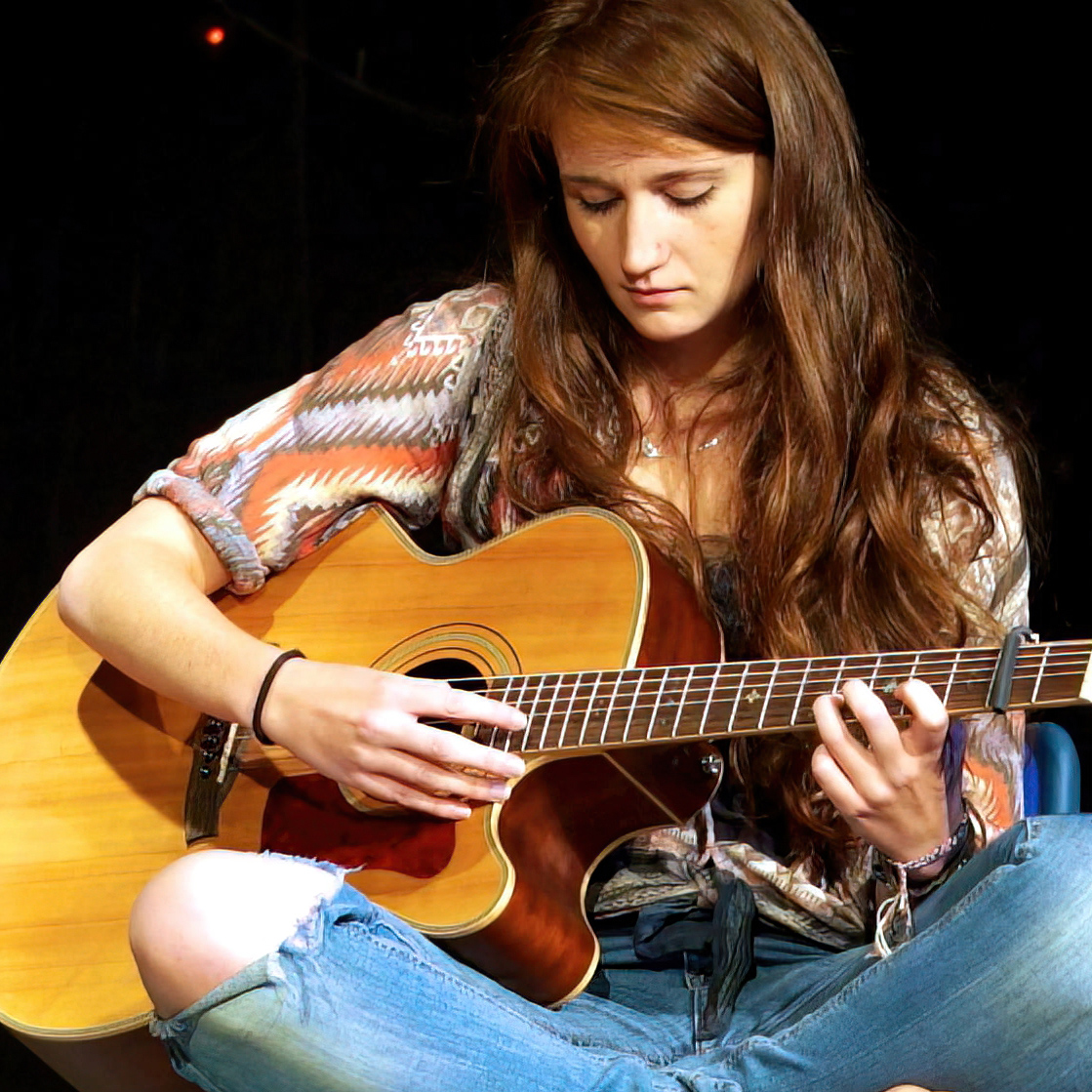Grace Cummings: “There’s a certain warmth that you get out of an older guitar that’s been played and played and played”
The Australian singer-songwriter checks in to talk songwriting, influences and her musical philosophy, and insists from the get-go that she is a guitar player not a guitarist

Grace Cummings hails from Melbourne, and her sophomore record, Storm Queen, was conceived and recorded during the longest lockdown to happen anywhere in the world.
The self-produced album has a raw, live feel with little in the way of accompanying instrumentation beyond Grace’s own acoustic guitar – and it’s all the richer for its simplicity and self-restraint.
“I’ve got an album here that is quite sparse and has a lot of space, which was something that was kind of probably just forced on me a little bit because of the pandemic,” she explains. “I think that maybe less is more.”
At the very beginning of our interview, Grace makes an interesting distinction: “I do play guitar, but I’m not a guitarist, if you know what I mean? I’m a guitar player.”
She is, in fact, also many other things – a singer, a songwriter and an actress – but Grace’s relationship with the instrument is defined by its ability to serve her and her music, rather than the other way around. It’s a distinction that will resonate with many.
She grew up listening to her parents’ collection of Neil Young, Bob Dylan, Lucinda Williams and Van Morrison records, as well as plenty of traditional Irish music.
“I was also obsessed with Wu-Tang Clan, AC/DC, The White Stripes and Radiohead,” she adds. Another of her all time favourites is Spiritualized, and the influence of frontman Jason Pierce looms large on her elegantly minimalistic approach to tracks such as Up In Flames, Heaven and Freak.
Get The Pick Newsletter
All the latest guitar news, interviews, lessons, reviews, deals and more, direct to your inbox!
“He has these really, really simple things to say,” she explains. “Simple but so grand and universal and dramatic, and he gets it across in this really classic way – a way that’s never going to go out of style.”

As a child, Grace learnt to sing and play the piano and drums. Later, she taught herself to play the guitar, but does confess to having had one traditional lesson, then taking a dislike to the teacher and never going back.
Instead, she learned to play by looking up favorites by the likes of George Harrison and Bob Dylan, and committing the chords to memory by writing her own songs with them. As such, her playing reverberates with plenty of idiosyncratic charm, and some recognizably retro nuances.
Although she still writes on piano, portability played a key role in the guitar overtaking as chief writing instrument.
Grace explains, “I used to write things on the piano, but then I stopped doing it because, you know, you could go somewhere and take a guitar with you. I think if I didn’t have to bring a guitar around, I wouldn’t have been able to learn a bunch of stuff.”
Another striking thing about Grace’s music is how guttural and intense her lyrical delivery is – channelling, at times, the fervent punk poeticism of visionaries like Patti Smith or even Tom Waits.
Musically, however, she tends to conjure the heady ambiance of the 1970s folk scene, so it’s rather fitting that the guitar she used to record Storm Queen – a 1975 Martin D-18 – comes straight from that era.
“There’s a certain warmth that you get out of an older guitar that’s been played and played and played,” says Grace. “The body of this guitar is so old and there’s just so much that’s happened to the wood. All that sh*t that happens over years and years that contributes to the warmth of it – like Neil Young’s guitar or Willie Nelson’s guitar. I’m not really motivated by the top end twang in new guitar strings.”
While sparsity rules on Storm Queen, Grace doubled many of her acoustic guitar parts, and her bandmate Cahill Kelly, who Grace describes as “one of the best guitarists I’ve ever come across,” added some tasteful electric flourishes. Elsewhere, Miles Brown provides theremin on Fly A Kite, Kat Mear adds fiddle to Freak, and Harry Cooper adds gravelly sax to the album’s title track.
Even with little accompaniment, Grace manages to achieve fullness and depth by harnessing the grand sonic expanses offered by open and altered tunings - and in particular, spends a lot of time in drop D.
Influenced by acoustic Led Zeppelin and Neil Young tracks, she says, “I think that it’s just so huge - the feeling or emotion - it gives a kind of a drama to what you’re doing without doing much at all.”
Whether it’s drone notes and open strings for fingerpicking or big open chords for strumming, she explains, “you can play something really easily while you put this big story over the top of it.”
While open tunings might provide a vast canvas for Grace to paint her lyrics upon, they pose a procedural challenge at gigs that many self-accompanying guitarists will be familiar with.
“I’ve been playing a bunch of solo gigs lately and a lot of it,” she explains, “is the audience waiting for me to tune my guitar. It’s alright, you just tell a story in between, but I really noticed on this last tour how much I change the guitar for what I’m doing.” She laughs, “So, more stories or more guitars will fix that problem!”
When playing live with her band, Grace is one of three guitar players, and she describes her role as “a foundation to the other two guys.” In this scenario, she will typically go electric and play a favorite old Gibson SG, which she recalls as having been “a bastard to play” until she recently had it overhauled. Now, it’s “the easiest, most playable guitar” she has.
Amp-wise, she favors Fenders and has a particular soft spot for the compact yet punchy Blues Junior. “I love them even when you’re playing big venues,” she says. “Or especially when you’re playing big venues – because they’re such a small little thing, but you can really crank them, and the kind of distortion that comes out is really filthy.”
After a Covid-necessitated hiatus from gigging that lasted for a significant chunk of her career so far, Grace returns to international touring this summer. It’s a welcome change. “Thank God,” she laughs, “we’re all sick of hanging around!”
- Storm Queen is out now via ATO Records.
Since graduating university with a degree in English, Ellie has spent the last decade working in a variety of media, marketing and live events roles. As well as being a regular contributor to GuitarWorld.com, she currently heads up the marketing team of a mid-scale venue in the south-west of England. She started dabbling with guitars around the age of seven and has been borderline obsessed ever since. She has a particular fascination with alternate tunings, is forever hunting for the perfect slide for the smaller-handed guitarist, and derives a sadistic pleasure from bothering her drummer mates with a preference for wonky time signatures.
“There’d been three-minute solos, which were just ridiculous – and knackering to play live!” Stoner-doom merchants Sergeant Thunderhoof may have toned down the self-indulgence, but their 10-minute epics still get medieval on your eardrums
“There’s a slight latency in there. You can’t be super-accurate”: Yngwie Malmsteen names the guitar picks that don’t work for shred

![A black-and-white action shot of Sergeant Thunderhoof perform live: [from left] Mark Sayer, Dan Flitcroft, Jim Camp and Josh Gallop](https://cdn.mos.cms.futurecdn.net/am3UhJbsxAE239XRRZ8zC8.jpg)









